Editor-in-Chief

Rebekah Brown
Rebekah is a strategic security and intelligence analyst specializing in threat intelligence, network warfare, systems analysis, and threat modeling. Rebekah spent over a decade on active duty as a cryptologic linguist, network warfare analyst, and cyber operations chief in the United States Marine Corps before moving to the private sector, where she has developed threat intelligence programs at multiple Fortune 500 companies. She received degrees in International Relations from Hawaii Pacific University, and Homeland Security with a cybersecurity focus, as well as graduate certificates in Intelligence Analysis and Neuroleadership from the American Military University. She is a published author and instructor on intelligence-driven incident response and adversary tactics.
Editorial Board
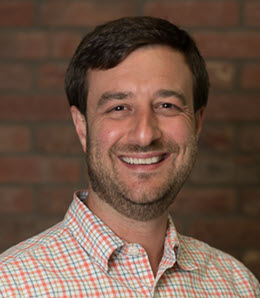
Sergio Caltagirone
In 9 years with the US Government, three years at Microsoft, and now four years at Dragos protecting the world's power and water systems, Sergio Caltagirone has hunted the most sophisticated targeted threats in the world, applying intelligence to protect billions of users while safeguarding civilization through the protection of critical infrastructure and industrial control systems. He co-created the Diamond Model of Intrusion Analysis, helping thousands of others bring more pain to adversaries by strengthening hunters and analysts. He supports the community as CEO of the Threat Intelligence Academy. He also serves as the Technical Director of the Global Emancipation Network, a non-profit, non-governmental organization (NGO), working with a world-class, all-volunteer team dedicated to ending human trafficking and rescuing victims through data science and analytics, saving tens of millions of lives.

Ulf Lindqvist
Ulf Lindqvist is a senior technical director in the Computer Science Laboratory at SRI International. He manages research and development programs regarding infrastructure security for government and commercial clients, including DARPA and the U.S. Department of Homeland Security’s Science and Technology Directorate. His areas of expertise include cybersecurity, infrastructure systems, intrusion detection in computer systems, and security for systems that interact with the physical world. Dr. Lindqvist has more than 35 publications in the computer security area, many of which are bridging the gap between theoretical and applied research. He has previously served in various leading roles in the security research and engineering community, including chair of the IEEE Computer Society’s Technical Committee on Security and Privacy, vice chair of the IEEE Cybersecurity Initiative, and general chair for the IEEE Symposium on Security and Privacy. Dr. Lindqvist holds a Ph.D. in computer engineering and a M.S. degree in computer science and engineering, both from Chalmers University of Technology in Sweden. He was named an SRI Fellow in 2016

Priscilla Moriuchi
Priscilla Moriuchi is a non-resident fellow at Harvard's Belfer Center for Science and International Affairs and works in Security Engineering and Architecture at Apple. Ms. Moriuchi is an expert on state-sponsored cyber operations and Asia Pacific regional and cyber threats, and is a widely published researcher and commentator on national and cyber security issues. Ms. Moriuchi was formerly the Head of Nation-state Research and the Principal Researcher at Recorded Future. Prior to joining the private sector, Ms. Moriuchi spent 12 years at the National Security Agency, most recently as the Enduring Threat Manager and top subject matter expert on East Asia and Pacific (EAP) cyber threats. Her cutting-edge research on China, Russia, and North Korea has been featured in the New York Times, The Washington Post, Wall Street Journal, and many others.
Review Board
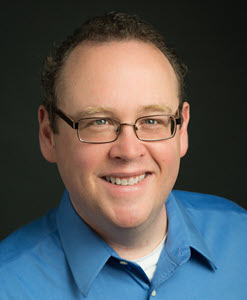
David Bianco
David has more than 20 years of experience in the information security field, with a particular focus on incident detection and response. He is active in the DFIR and Threat Hunting community, speaking and writing on the subjects of incident detection, threat intelligence and threat hunting. He is the principal contributor to The ThreatHunting Project (http://ThreatHunting.net).

Crista Giering
Crista Giering is a cyber threat intelligence professional with 15 years of experience in intelligence analysis. She began her journey with the Central Intelligence Agency as a political analyst covering the Middle East and North Africa. After nearly nine years of informing US policy and providing decision-enabling assessments, she pivoted to cybersecurity at a Fortune 100 company, helping to establish the company’s cyber threat intelligence team. Crista has a passion for analytic tradecraft, structured analytic techniques, and investigating the impact of geopolitics on cybersecurity.
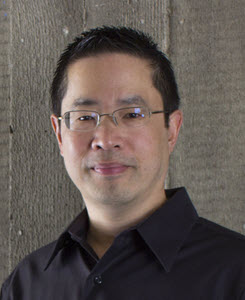
Patrick Lin
Patrick Lin, PhD, is the director of the Ethics + Emerging Sciences Group at Cal Poly, where he is a full philosophy professor. He is currently affiliated with Stanford Law School, the 100 Year Study on AI, Czech Academy of Sciences, Center for a New American Security, and World Economic Forum. Previous affiliations include: Stanford’s School of Engineering, US Naval Academy, Univ. of Notre Dame, Dartmouth, UNIDIR, and the Fulbright specialist program (Univ. of Iceland). Prof. Lin is well published in technology ethics—incl. on cybersecurity, AI, robotics, autonomous driving, bioengineering, frontier development, nanotechnology, security technologies, and more—and is regularly invited to provide briefings on the subject to industry, media, and government. He teaches courses in ethics, philosophy of technology, and philosophy of law, and he earned his BA from UC Berkeley and PhD from UC Santa Barbara.
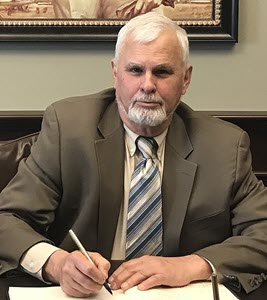
George Lucas
Professor Lucas is “Distinguished Chair in Ethics” Emeritus at the U.S. Naval Academy, and Professor Emeritus of Ethics and Public Policy at the Graduate School of Public Policy at the Naval Postgraduate School in Monterey, California. He has taught at Georgetown University, Notre Dame University, Emory University, Case-Western Reserve University, the French Military Academy (Saint-Cyr), and the Catholic University of Leuven in Belgium, and most recently served as the Vice Admiral James B. Stockdale Professor of Ethics at the U.S. Naval War College (Newport RI). His main areas of interest are applied moral philosophy and military ethics, and he has written on such topics as irregular and hybrid warfare, cyber conflict, military and professional ethics, and ethical challenges of emerging military technologies. Publications include Ethics and Military Strategy: Moving Beyond Clausewitz (London: Routledge, 2019), Ethics and Cyber Warfare (Oxford University Press, 2017), Military Ethics: What Everyone Needs to Know (Oxford University Press, 2016), The Routledge Handbook of Military Ethics (Routledge, 2015), and Anthropologists in Arms: the Ethics of Military Anthropology (AltaMira Press, 2009). His most recent book is The Ordering of Time: Meditations on the History of Philosophy (Edinburgh University Press, 2020).
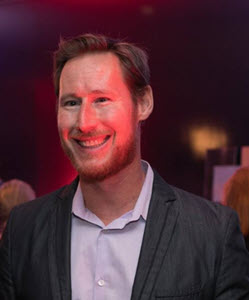
Gordon Lyon
Gordon "Fyodor" Lyon authored the open source Nmap Security Scanner in 1997 and continues to coordinate its development. He also maintains the SecLists.Org, Insecure.Org, SecTools.Org, and Nmap.Org security resource sites and has authored seminal papers and patents on remote operating system detection and stealth port scanning. He is a founding member of the Honeynet Project and served on the technical advisory boards for Qualys and AlienVault. He also authored or co-authored the books "Nmap Network Scanning", "Know Your Enemy: Honeynets" and "Stealing the Network: How to Own a Continent". His newest project is Npcap, a raw networking library and driver for Windows.

Katie Nickels
Katie is the Director of Intelligence for Red Canary as well as a SANS Certified Instructor for FOR578: Cyber Threat Intelligence. She has worked on cyber threat intelligence, network defense, and incident response for over a decade for the DoD, MITRE, Raytheon, and ManTech. Katie hails from a liberal arts background with degrees from Smith College and Georgetown University, embracing the power of applying liberal arts prowess to cybersecurity. Katie has also served as a co-chair of the SANS CTI Summit and FIRST CTI Symposium. She was the 2018 recipient of the President's Award from the Women's Society of Cyberjutsu and serves as the Program Manager for the Cyberjutsu Girls Academy, which seeks to inspire young women to learn more about STEM.
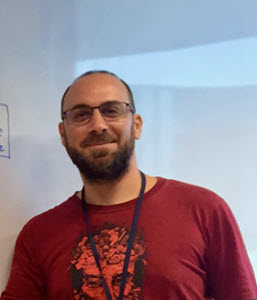
Andreas Sfakianakis
Andreas is a CTI professional with over a decade of experience in cybersecurity. He has been working as a CTI analyst in the financial and Oil and Gas sectors as well as for European Union's Agency for Cyber Security (ENISA). Andreas is the author of several ENISA reports in the area of CTI, CSIRT capabilities, and red teaming. He is also a member of ENISA's CTI and Incident Response Working Groups and a member of the Programme Committee for the FIRST CTI conference. Finally, he has presented in CTI-EU, FIRST CTI, SANS CTI, FS-ISAC conferences and is a CTI instructor during ENISA-FORTH Summer Schools and for SANS.
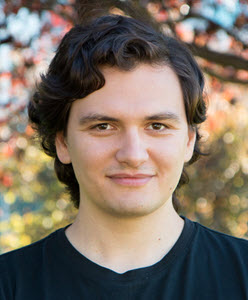
Mike Sosonkin
Mikhail Sosonkin is a Security Researcher who enjoys hacking devices,reversing malware and solving problems for the greater good. Mikhail has a Computer Science degree from NYU Tandon School of Engineering and a Software Engineering degree from Oxford University. Since graduation he has been teaching Offensive Security, and other similar subjects, at NYU Cyber Security program. While the current employer would prefer not to be named, he works in a very cool place where he gets to solve some of the world's hardest security problems.

